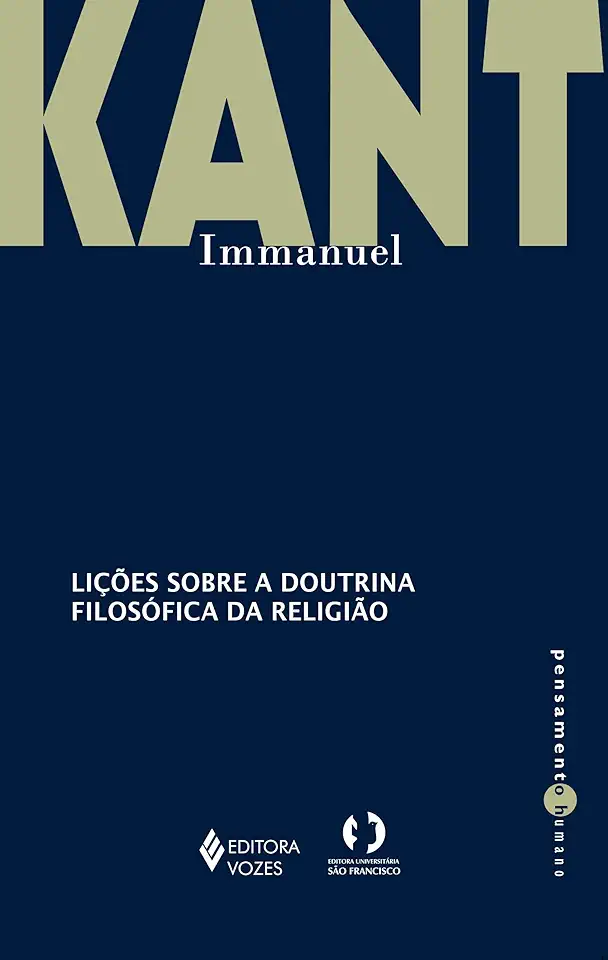
Lectures on the Philosophical Doctrine of Religion - Kant, Immanuel
Lectures on the Philosophical Doctrine of Religion
A Comprehensive Exploration of Religion and Philosophy
In his profound and thought-provoking work, "Lectures on the Philosophical Doctrine of Religion," Immanuel Kant delves into the intricate relationship between religion and philosophy, offering a comprehensive exploration of the nature of religious belief, the existence of God, and the moral foundations of religion. Kant's profound insights and rigorous philosophical analysis make this book an essential read for anyone seeking a deeper understanding of the philosophical underpinnings of religious thought.
Key Themes and Arguments
The Essence of Religion
Kant begins by examining the essence of religion, arguing that it is rooted in the human capacity for reason and morality. He posits that religion is not merely a matter of blind faith or adherence to dogma, but rather a rational response to the demands of practical reason and the moral law. Kant's emphasis on the rational basis of religion challenges traditional notions of religious belief and opens up new avenues for philosophical inquiry.
The Existence of God
Kant tackles the age-old question of the existence of God, presenting a nuanced and sophisticated argument that combines elements of rationalism and empiricism. He argues that while the existence of God cannot be proven through pure reason alone, there are compelling moral and practical reasons to believe in a divine being. Kant's exploration of the teleological argument and the moral argument for God's existence provides a fresh perspective on this enduring philosophical debate.
The Moral Foundations of Religion
Kant places great emphasis on the moral foundations of religion, arguing that true religion must be grounded in ethical principles and the pursuit of virtue. He rejects the notion of religion as a mere means of appeasing a wrathful deity, instead emphasizing the importance of moral conduct and the cultivation of a virtuous character. Kant's ethical approach to religion challenges conventional understandings of religious practice and highlights the transformative power of religious belief.
Significance and Impact
"Lectures on the Philosophical Doctrine of Religion" has had a profound impact on the fields of philosophy, theology, and religious studies. Kant's rigorous analysis and innovative arguments have challenged traditional conceptions of religion and opened up new avenues for philosophical exploration. His work has influenced subsequent thinkers, including Hegel, Schleiermacher, and Kierkegaard, and continues to be a source of inspiration and debate in contemporary philosophical and theological discourse.
Why You Should Read This Book
If you are seeking a profound and intellectually stimulating exploration of religion and philosophy, "Lectures on the Philosophical Doctrine of Religion" is an essential read. Kant's masterful analysis, combined with his clear and engaging writing style, makes this book accessible to readers of all backgrounds. Whether you are a scholar, a student, or simply someone curious about the philosophical foundations of religious belief, this book promises to enrich your understanding and challenge your preconceptions.
Conclusion
"Lectures on the Philosophical Doctrine of Religion" is a seminal work that has shaped our understanding of religion and philosophy. Kant's profound insights and rigorous arguments provide a compelling invitation to explore the deeper dimensions of religious thought and its relationship to human reason and morality. This book is a must-read for anyone seeking a deeper understanding of the philosophical underpinnings of religious belief and the enduring questions that have captivated human thought for centuries.